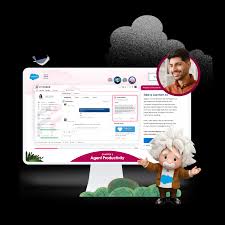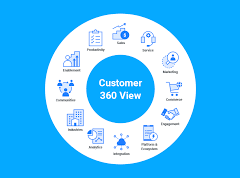With investor enthusiasm for AI beginning to fade, Salesforce is shifting focus to its next AI wave, “Agentforce,” which will be showcased at the Dreamforce customer conference. This announcement comes at a time when Salesforce stock has underperformed, with revenue growth slowing and expectations building that AI-related revenue may not materialize until 2025. Salesforce and OpenAI Advances in AI.
The Agentforce platform will be featured at Dreamforce, running from Sept. 17 to Sept. 19, and aims to automate routine business tasks while offering real-time insights and guidance. CEO Marc Benioff noted in a Sept. 12 briefing that Agentforce represents the third wave of AI, moving beyond conversational chatbots to more autonomous agents. Early adopters of the platform include Walt Disney, Kaiser Permanente, Fossil, Wiley, and OpenTable.
Meanwhile, Salesforce faces stiff competition. Microsoft is hosting its own AI event, Microsoft 365 Copilot Wave 2, which focuses on business productivity features powered by generative AI. Like Salesforce, Microsoft’s AI tools have yet to demonstrate significant revenue impact, as customers are still testing the technologies.
Salesforce is pushing Agentforce as an evolution of its previous Einstein copilot, which integrates conversational AI within its apps. Agentforce aims to take this further by reducing human oversight and improving efficiency in sales, marketing, and customer service roles. The product is scheduled for an October rollout, with a pricing model based on usage—potentially $2 per interaction for complex queries.
Analysts have mixed opinions on Agentforce’s potential. Truist Securities sees the AI platform driving future subscription growth, while Barclays believes it could gain more traction than previous AI tools due to its fully autonomous nature. However, others, like Monness Crespi Hardt & Co., remain cautious, noting concerns about Salesforce’s slowing revenue growth in a challenging macroeconomic environment.
Salesforce Agentforce PlatformIn its second-quarter earnings call, Salesforce shared promising results from an Agentforce trial, where the platform resolved 90% of patient inquiries for a large healthcare customer. Analysts like Morgan Stanley’s Keith Weiss see Agentforce as a key differentiator for Salesforce, enabling customers to leverage AI at scale with reduced complexity and cost.
Despite this optimism, Salesforce still faces challenges. Competitors such as Meta’s AI Studio and ServiceNow are also advancing AI agent technologies. ServiceNow, for instance, emphasizes the need for strict human oversight of AI actions, a sentiment echoed by Salesforce’s chief ethical and humane use officer, Paula Goldman.
As the tech industry races to enhance AI autonomy, concerns about the technology’s limitations—such as bias, hallucinations, and decision-making risks—remain central. Experts warn that while AI agents hold great potential, they must be carefully regulated to prevent unintended consequences.













